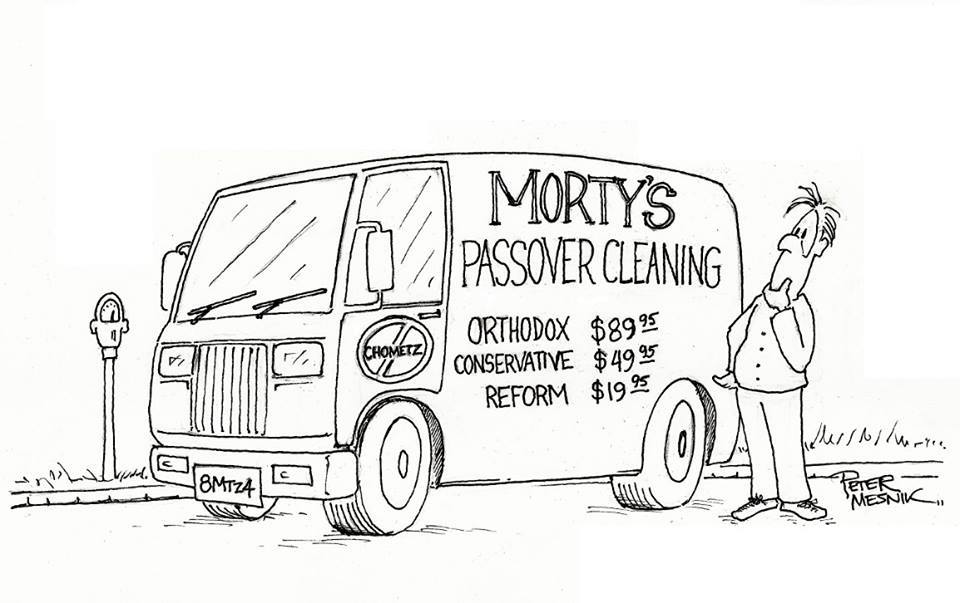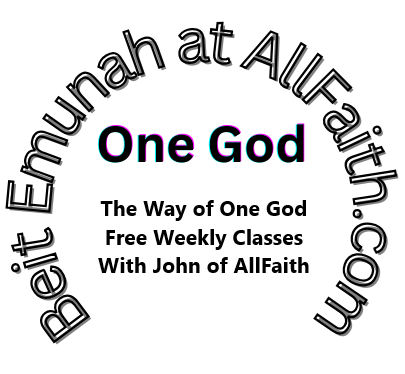Orthodox and Sephardic Judaism are the most traditionally linked forms of our faith. Halachically they are the most strictly observant without question. However an halachically observant life is difficult, especially for those living in non-Jewish communities. It is quite possible to live a frum (observant) life that is devoid of the spirit of demanded by Tradition. Are those who are externally strict in their observance but inwardly spitually asleep more really more frum than others? What of those whose hearts burn with spirituality and love for the fellows but who lack external observance? In other otherwords, is being observant a matter of outward observance only? What role does spiritual consciousness have in Jewish practice?
The Reform Movement, which began in the late 1800's, believes that the times have changed and that Judaism must adapt if it is going to survive. Conversely, the Orthodox see many of their reforms as nothing but assimilation, threatening our collective future. Several of the reforms embraced are regarded as "heresy" by traditional Judaism. However the Reform Movement has found wide acceptance among Diaspora Jews (i.e. those not living in Israel) even though it is all but unknown in Israel. Who is right?
The Conservative/Masorti Movement seeks to be a balance between what it sees as two extremes. Some of these congregations lean more towards the Orthodox perspectives, while others are more to the Left/Reform. and some are centrist. We sometimes refer to "Conserva-dox" and "Conserva-form" sects within the Conservative Movement. For the most part the Orthodox see only "Orthodox" and "non-Orthodox."
 The other groups, like Jewish Renewal, Reconstructionism, etc. are generally well left of center. There are also a great many "independent" and house shuls. Their classifications depending on the views of their local members. Some of these are virtually Orthodox but most are closer to "Conserva-form."
The other groups, like Jewish Renewal, Reconstructionism, etc. are generally well left of center. There are also a great many "independent" and house shuls. Their classifications depending on the views of their local members. Some of these are virtually Orthodox but most are closer to "Conserva-form."
Jewish Orthodoxy (Traditional Judaism) has great diversity within it. Some are Chassidic (i.e. followers of one of the many sects based on the BESHT) while others are opposed to Chassidus, others are neutral on the subject. Some are so devoted to a certain rabbinic lineage that they wont even consider the other Orthodox sects to be authentic, let alone the non-Orthodox. It has been correctly stated that Judaism is terrible at multiplication, but we are the masters of division!
Orthodox Judaism, as a general statement, does not accept the legitimacy of most (if any) non-Orthodox rabbis. Non-Orthodox female rabbis have no Orthodox acceptance since Orthodoxy forbids women to hold this position. Because of this lack of acceptance of non-Orthodox rabbis (male or female) Orthodoxy does not recognize the conversions they oversee. As a result, the vast majority of converted Jews in the US and the EU are considered Gentiles by most Orthodox Jews. In order to be accepted as Halachically Jewish such Jews must re-convert under an Orthodox beit din (i.e. religious court). Not just any Orthodox court mind you, but that accepted by the individual Orthodox community. I have spoken with many people who have converted three, even four times seeking acceptance from this group or that. Orthodoxy is sadly inwardly divided. Not all Orthodox dinei Torah will accept conversions they did not personally oversee making full acceptence impossible for any non-born Jew. This makes determining who is and who is not Jewish incredibly difficult and leaves all converts as second class Jews, something strongly condemned by the Rambam.
We Sephardic Jews have been blessed by avoiding the movement divisions tearing the Ashkenzim apart. We are simply Jews. Some are more observant, some less. While the Sepharidim accept all legitamate converts regardless of sect, not all Ashkenazim accept ours.
Very little about Judaism is clear cut!
Having said this, for those wishing to live as strictly Torah observant Jews, and wanting to be accepted as such, one of the Orthodox sects will provide a greater level of halachic observance, guidance and acceptance. The Rabbinic Counsel of America can guide you into the widest levels of Orthodox acceptance and practice.
Personally, I am moved by the teachings of Rebbe Nachman of Breslov so I embrace Breslover Chassidut as a Sephardic Jew. BUT its not for everyone. There is no one correct way to be a Jew. Each of us must find what works best for us
I believe "a Jew is Jew" and that the divisiveness between our movements is destructive and unneeded. When one determines what kind of Jew he/she wants to be, i.e. the level and method of desired observance, the rest usually become clear.
For many Jews the decision comes down to shuls in the area. Many areas that have a Jewish presence, most don't, will only offer one or two choices. Often there will be a Chabad (which is an Orthodox Chassidic sect) and either a Reform or Conservative synagogue. Many areas only have one option while some will have many more. Many Jews end up moving in order to live in a community that satisfies them spiritually. Finding the right shul can be difficult!
Many religious Jews choose not to affiliate at all but do their observances at home. Some only go to a shul during the High Holy Days. This is not necessarily an indication of their level of observance nor devotion. For many finding a fit shul is simply impossible, even when there is one or more in their area.
A solid alternative to the traditional brick and mortar shul is making online connections such as our House of Seven Beggars (Rabbi Aryel Nachman ben Chaim), Breslov Campus, Web Yeshiva, my online broadcasts, and so on.
Decide what you believe and how you wish to live your Jewish life. Seek HaShem in hitbodedut (private, secluded prayer) and then seek a shul, a community, or a rabbi that fits that goal. Remember that on Derech HaShem ("the Path of G-d") being static is not a virtue. As you grow in your Judaism embrace your various options in order to continually grow in your devekut (attachment to G-d.). That which draws you to HaShem is the Right Path for you!

